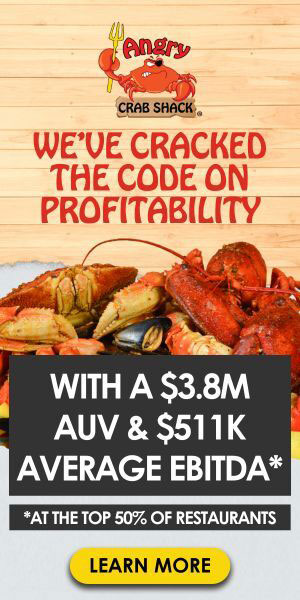Item 19 Financial Performance Representations: The Legal Do's and Don'ts
Most prospective franchisees want financial performance information as part of their due diligence process when deciding whether or not to purchase a particular franchise. Prospective franchisees are understandably hesitant to invest thousands of dollars if they have no idea what kind of financial performance exists at the outlet or unit level. Financial performance information can be a powerful selling tool for franchisors because this information responds to a prospective franchisee's compelling need for information concerning the possible financial results of their investment.
Neither state nor federal law requires that a franchisor provide financial information to prospects. Except under two limited circumstances, if a franchisor is going to provide a prospect with any type of financial performance information, this information must be included in Item 19 of the Franchise Disclosure Document (FDD).
1. What is a financial performance representation (FPR)?
A financial performance representation, or FPR, includes any oral, written, or visual representation to a prospective franchisee (including a general dissemination in the media) that states or suggests a specific level or range of actual or potential sales, income, gross or net profits, or "break-even" figures. Its definition encompasses not only the information set forth in Item 19 of a franchisor's FDD, it also covers financial information set forth in any advertisement on the franchisor's website and verbal representations made by a franchise seller on behalf of a franchisor. With the exception of cost information (this exception is described further below), the definition of FPR essentially covers every aspect of financial information that a prospective franchisee might request or a franchisor might provide during the franchise sales process.
When most people think of an FPR, they think of a representation that explicitly states a specific level or range of actual or potential earnings -- e.g., "earn a $50,000 profit," "sales volume of $350,000," or "earn up to $45,000 in your first year." While all of these examples meet the definition of an FPR, the amended FTC Rule broadly defines FPR to include any representation, including any oral, written, or visual representation that states expressly or by implication a specific level or range of actual or potential sales, income, gross profits, or net profits.
Accordingly, in addition to the typical FPRs that come to mind, other examples include implied representations from which a prospective franchisee can infer a specific level or range of income, sales or profits. In fact, statements such as "earn enough money to buy a new Porsche," and "100% return on your investment within your first year of operation" all constitute FPRs. Additionally, assisting a prospective franchisee in preparing a pro forma, commenting on the pro forma, or reviewing a business plan also may qualify as an FPR. Moreover, providing prospective franchisees with information on the cost of goods sold, if expressed as a percentage of sales, also constitutes an FPR.
Mere puffery, however, has been excluded from the ambit of FPRs. Examples of mere puffery statements that do not qualify as FPRs include, "make big money," "this business is a real cash cow," or "opportunity of a lifetime." While these types of statements may be ill-advised or troublesome for other reasons, they are not by themselves an FPR. The key point franchisors should remember is that FPRs include not only what is contained in Item 19 of their FDD, but also the information stated in their brochures and advertising materials, on their website, and in verbal representations made by their franchise sellers.
Item 19 FPRs come in all sorts of formats, including historical performance results and future performance projections. Regardless of the format or the type of information presented, the representation must have a reasonable basis and substantiation at the time it is made. More and more prospective franchisees (and their lenders and advisors) are interested in receiving financial information as part of a candidate's due diligence process. The types of FPRs are many and varied. You can use information on corporate-owned units and affiliate-owned units as well as franchised units. While most Item 19 disclosures include gross revenue figures, other data (e.g., expenses, customer visits or industry-relevant information such as hotel occupancy rates) can be used to provide some level of profit information. Franchisors also can prepare an Item 19 that is divided into quartiles, or that is separated by the number of years that units have been open. The objective is to prepare an Item 19 that meets all legal requirements and at the same time presents the most compelling business case for joining the franchise system.
2. Financial information that is exempt from Item 19
As noted above, a franchisor may not provide a prospective franchisee with financial performance information unless the information is set forth in Item 19 of the FDD. There are, however, two exceptions to this general rule.
First, a franchisor may provide a particular prospective franchisee with the financial performance information for a specific outlet the franchisee is interested in buying. In this situation, a franchisor may provide that franchisee with the actual operating results for that specific outlet. This exception is limited to only those prospective franchisees actually interested in purchasing that specific outlet. Franchisors cannot publish the actual results of a specific outlet for sale and distribute this information to all prospective franchisees, regardless of whether they are interested in purchasing the specific outlet. Franchisors that rely on this exception should properly document the exception with the financial information provided and an acknowledgement from the prospective franchisee regarding the circumstances.
Second, if a franchisor includes an FPR in Item 19 of its FDD, it may provide a prospective franchisee with supplemental financial information relating to a particular location or addressing a particular characteristic of an outlet. For example, if a franchisor makes an FPR regarding a standard freestanding restaurant location, a franchisor may modify the information contained in its FPR to conform to a particular variation of an outlet, such as a kiosk location. Specific rules and requirements govern the making of a supplemental FPR. We recommend that you discuss this issue with your franchise attorney before providing a supplemental representation to a prospective franchisee.
3. "Costs" no longer constitute FPRs
One big change under the amended FTC Rule is that a franchisor can provide cost information to prospects. Under the amended Rule, a franchisor can provide a prospective franchisee with cost or expense information without including this information in Item 19 of its FDD. For example, the disclosure of fees, required purchases, and expenses similar to the information reported in Items 5, 6, and 7 of a franchisor's FDD ordinarily will not constitute an FPR.
Likewise, a franchisor may provide prospective franchisee candidates with a cost information sheet that shows the Item 7 initial investment estimates in one column and ongoing monthly operating cost estimates, such as food and labor costs, in another column. Franchisors that provide food, labor, or other costs must keep in mind that they cannot provide this information as a percentage of gross revenues unless the information is contained in Item 19. A presentation of cost data, coupled with additional sales or earnings figures from which prospective franchisees could calculate average net profits falls within the definition of an FPR and triggers Item 19 compliance requirements. For product-based franchisors, a franchisor might provide the prospective franchisee with a price list for its product line. If a franchisor chooses to provide its prospective franchisees with cost and expense information that is outside the four corners of its FDD, the franchisor must make sure this information is consistent with the information contained in Items 5, 6, and 7 of its FDD.
4. Recommendations for franchisors that do not include financial performance information in Item 19
As noted above, neither federal nor state law requires franchisors to include an FPR in Item 19 of their FDD. Franchisors that choose not to include an FPR in their FDD must make sure that everyone in their organization is aware that they cannot discuss financial performance information with prospects. These franchisors should consider providing their employees with training on how they should respond when a prospective franchisee requests financial information. For example, franchisors should train their employees on how to respond to the following questions, "How much will I make?" or "What are the average annual sales at your existing locations?"
Franchisors must be mindful that in responding to a prospective franchisee's request for financial information, a franchisor cannot claim that it is illegal to provide such information to prospects before they sign a franchise agreement. If a franchisor chooses to not include an FPR in Item 19 of its FDD, the only way a prospective franchisee can obtain actual system financial information is to contact current franchisees. Franchisors, however, must be careful to not direct a prospective franchisee to their "top-performing" franchisees. While no reported cases have directly addressed this issue, it is potentially misleading for a franchisor to steer a prospect to only its top-performing franchisees. Instead, a franchisor should encourage a prospect to contact as many franchisees as they can.
Conclusion
Preparation of a compelling Item 19 FPR is a key component of a franchisor's franchise sales process. Or, a franchisor may decide not to include an Item 19 FPR in their FDD. Regardless of which path they choose, franchisors should do so with a complete understanding of both the legal and business implications.
Note: This article is provided for general informational purposes only and should not be considered or construed as legal advice or opinion concerning any specific circumstances or facts. You are encouraged to consult with your own franchise lawyer regarding any specific issue, situation, or legal question you may have.
Brian Schnell is a leader of the Faegre & Benson Franchise Team, which represents more than 200 franchisors in 35 states and 7 countries. He is a past chair of the IFA Supplier Forum; a member of its Legal/Legislative, Awards, and Membership committees; and in 2009 became the first male to receive the IFA Women's Franchise Committee Crystal Compass. Contact him at 612-766-7472 or [email protected].
Share this Feature
Recommended Reading:
| ADVERTISE | SPONSORED CONTENT |
FRANCHISE TOPICS
- Multi-Unit Franchising
- Get Started in Franchising
- Franchise Growth
- Franchise Operations
- Open New Units
- Franchise Leadership
- Franchise Marketing
- Technology
- Franchise Law
- Franchise Awards
- Franchise Rankings
- Franchise Trends
- Franchise Development
- Featured Franchise Stories
| ADVERTISE | SPONSORED CONTENT |








 The franchise listed above are not related to or endorsed by Franchise Update or Franchise Update Media Group. We are not engaged in, supporting, or endorsing any specific franchise, business opportunity, company or individual. No statement in this site is to be construed as a recommendation. We encourage prospective franchise buyers to perform extensive due diligence when considering a franchise opportunity.
The franchise listed above are not related to or endorsed by Franchise Update or Franchise Update Media Group. We are not engaged in, supporting, or endorsing any specific franchise, business opportunity, company or individual. No statement in this site is to be construed as a recommendation. We encourage prospective franchise buyers to perform extensive due diligence when considering a franchise opportunity.